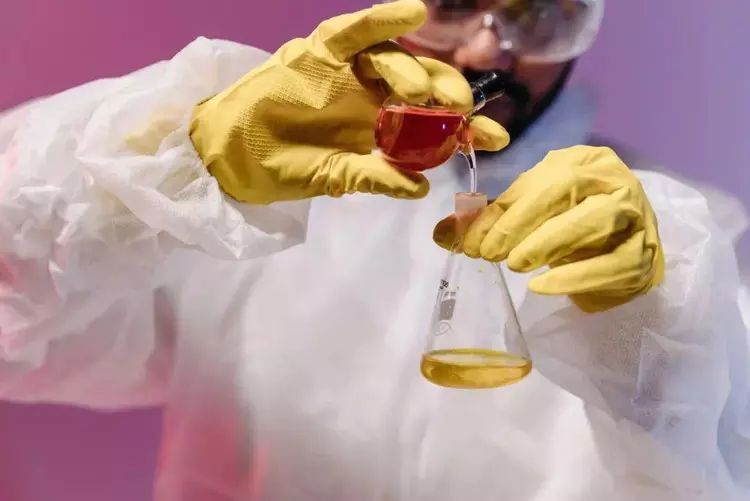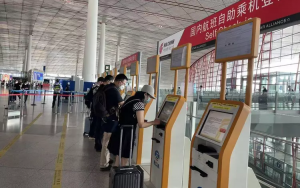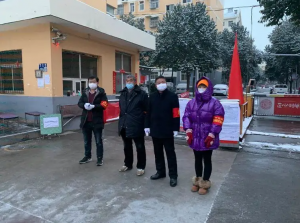
Merck Sharp & Dohme’s new crown oral drug expected to enter China
The Global Times reporter learned from China National Pharmaceutical Corporation (CNPC) on September 28 that CNPC and Mercer had reached a cooperation framework agreement on the same day. Sinopharm will obtain the distribution and exclusive import rights of the oral anti-neo-coronavirus drug Monoprevir developed by Merck Sharp & Dohme, and the two sides will also evaluate the feasibility of technology transfer for the production, supply and commercialization of the drug in China.
According to the Global Times, there are currently two new oral therapeutics approved for the global market, namely Merck Sharp & Dohme’s Monoravir and Pfizer’s Nematavir. As the world’s first approved oral small molecule neo-coronavirus treatment, monoprevir has received marketing authorization or emergency use authorization in more than 40 countries and regions, including the United States, the European Union, Australia, Japan, South Korea, and Hong Kong and Taiwan in China. By the end of August 2022, this drug was treating more than 1.8 million patients. Currently, a rolling submission of the marketing application dossier for monoprevir has been completed in China.
According to data from available studies, as an oral antiviral drug for the treatment of mild to moderate patients over 18 years of age who may progress to severe neoconjunctivitis and are at risk of hospitalization, monoprevir significantly reduces the risk of hospitalization or death in patients with neoconjunctivitis, according to Dr. Hao Wu, professor and chief physician of the Division of Infection and Immunology at Beijing Youan Hospital, affiliated with Capital Medical University. A population-wide analysis showed that the risk of hospitalization or death would be reduced by 30% with the use of this drug. Patients are also more likely to experience sustained improvement or relief of most of the symptoms that occur after infection with the new coronavirus, such as loss of smell, loss of taste, fever, cough, fatigue, and headache, after treatment with monoprevir. On the third, fifth and tenth days of the drug, the viral load in the patient’s body will drop significantly. “A previously conducted ferret model trial showed that no infectious active virus was detected in all ferrets infected with neocoronavirus 24 hours after the administration of monoprevir, and based on this result, it is speculated that neocoronavirus patients may no longer be infectious roughly 24 to 36 hours after oral monoprevir treatment.” Wu Hao stated.
To address the issue of possible drug failure due to mutant strains of neo-crown, Wu Hao said that preclinical studies, clinical studies and current real-world studies have shown that monoprevir has antiviral activity against different mutant strains of neo-crown virus.
“In a recent letter published in the New England Journal of Medicine, independent researchers from the United States and Japan described a study that found that monoprevir was effective against Omicron variant strains BA.2.12.1, BA.4 and BA.5.” A real-world retrospective cohort study conducted in Hong Kong also demonstrated the efficacy and antiviral effect of monoprevir against the Omicron BA.2 variant, according to Wu Hao. Data from the study showed that patients treated with monoprevir had a 47 percent lower risk of disease progression, a 45 percent lower risk of death and a 21 percent greater likelihood of earlier viral load reduction compared to controls.
At the same time, Wu Hao noted that adverse effects exist after taking monoprevir. The study showed that diarrhea, nausea and dizziness may occur after taking monoprevir, but the overall incidence of adverse events was low and the symptoms were mild, similar to the incidence in the placebo group. No new safety issues have been identified since the drug’s launch in November 2021.
And unlike some oral neostriatal drugs that are associated with drug-drug interactions when combined with ritonavir-containing drugs for neostriatal treatment, there are no known drug-drug interactions with monoprevir. The drug is friendly to people with impaired renal and hepatic function, the elderly and people of different weights. According to Hao Wu, we need multiple options for the treatment of neostriatal pneumonia in response to the rapidly changing neostriatal virus, and monoprevir should be another alternative oral therapeutic agent for China’s response to the neostriatal pneumonia outbreak.
At the signing ceremony of the cooperation framework agreement held on September 28, Liu Jingzhen, Chairman of Sinopharm, said that the cooperation with Merck Sharp & Dohme is another positive practice to realize the “treatability” of Neoplasmosis and further build a health community for human beings. We hope that both sides will take advantage of their respective strengths and deepen international cooperation to provide Chinese patients with high-quality, convenient and affordable drugs as soon as possible.
According to the Global Times, according to the terms of the cooperation framework agreement, after the approval of monoprevir in China, Merck Sharp & Dohme will grant the distribution and exclusive import rights of the drug in China to Sinopharm. Sinopharm China Biologics will actively promote local production and supply after receiving the technology transfer of Merck Sharp & Dohme Monoravir, and will continue to contribute to the fight against the new crown pneumonia epidemic.


Average Rating